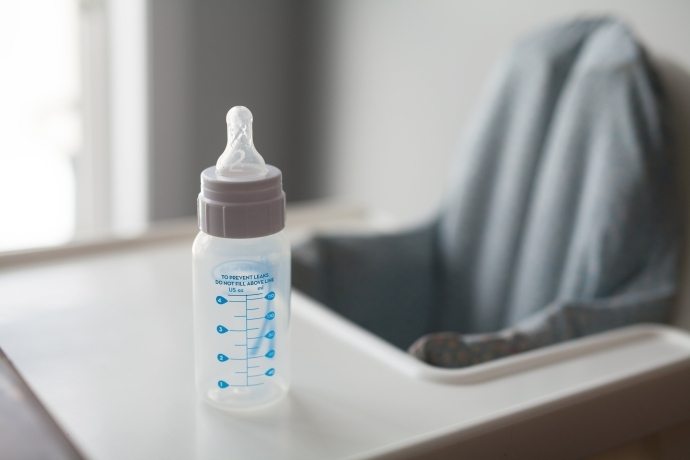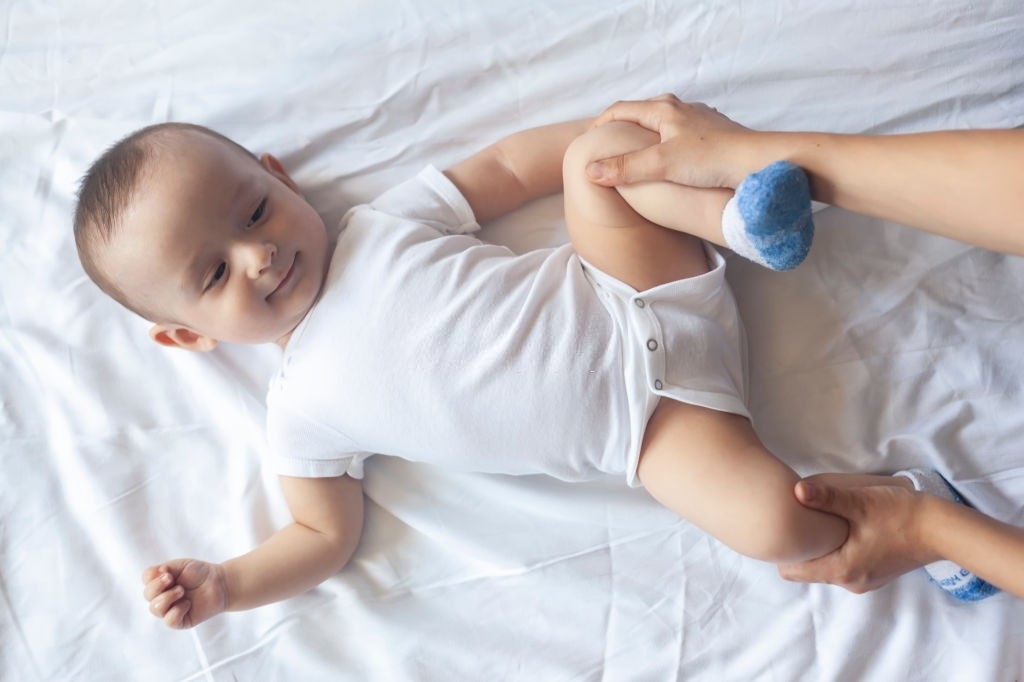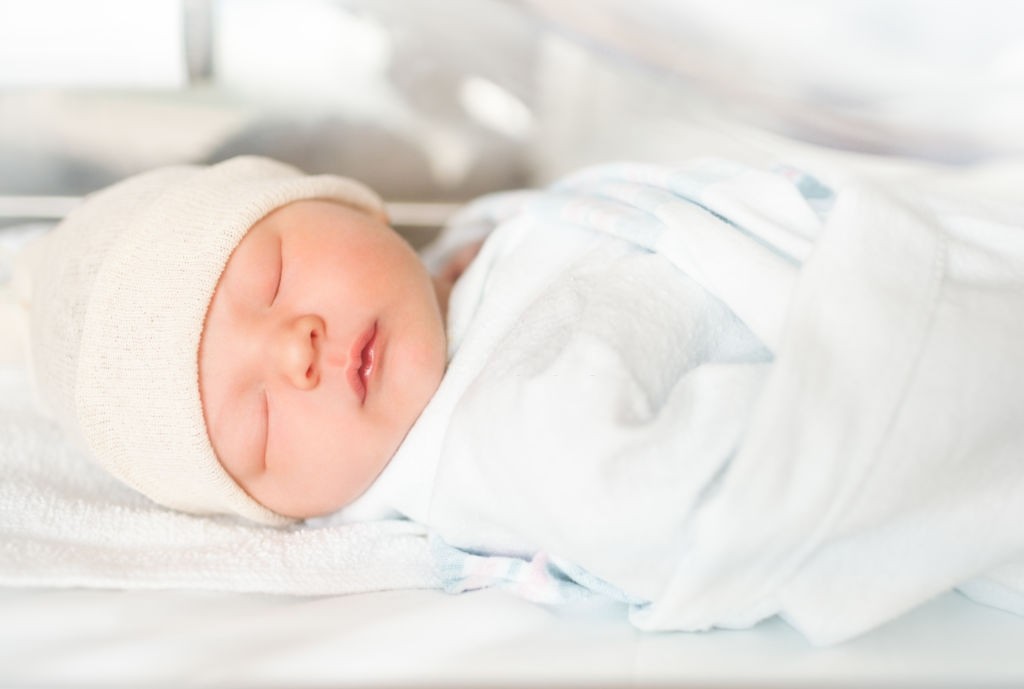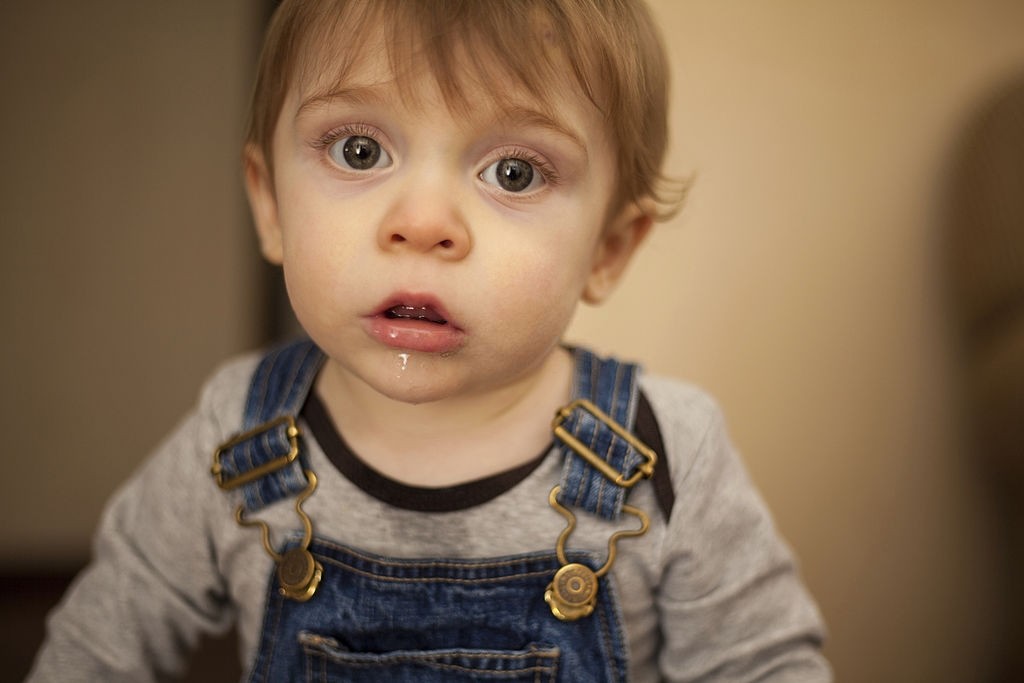There are many causes of the gassy condition such as food sensitivity, getting gas from milk, sucking or crying a pacifier, excessive air but don’t worry. The buildup of gas can end up pains and discomfort because it’s trapped in the gastrointestinal tract of your baby. If you wonder that what to give babies for gas, I have many easy and effective treatments you can apply at home in place of calling the pediatrician immediately.
What Causes Gas In Babies?
 In general, the cause of the baby gas pain is from the pockets of excessive gas in the intestines or stomach. That means these pockets cause the discomfort and pain in your baby’s tummy so it won’t sleep. Below is the list of 6 common causes:
In general, the cause of the baby gas pain is from the pockets of excessive gas in the intestines or stomach. That means these pockets cause the discomfort and pain in your baby’s tummy so it won’t sleep. Below is the list of 6 common causes:
- You feed in wrong way. Remember that whether your baby is breastfeeding or bottle-feeding, the positions of breast and bottle must be properly. If not, the baby will swallow more air than what it should be, ending up excessive gas.
- You feed too much food at one time, leading to overfeeding so its tummy is also overloaded.
- Your baby gets the lactose overload. It’s very easy to happen when you let it consume a big amount of foremilk that is low in fat but rich in lactose. The excessive gas production is because a part of lactose isn’t digested, ending up the lack of fat in order to slow down the process.
- Some babies are allergic and intolerant a few ingredients in food or formula even breast.
- It owns an immature digestive system. The newborns are too little to learn how to process what they consume like food and gas, even stool rightly. Moreover, its intestines haven’t made its own microflora that is a group of unique microorganisms for the guts. Meanwhile, your baby’s immune system and digestion process are in need of the microflora to work well.
- Your baby cries too much. This may end up with taking excessive air, leading to too much gas.
What to Give Babies for Gas
Below, I listed what to give babies for gas. You will find out at least one way that you can apply for your baby:
Burp your baby regular
While feeding, you had better burp your baby frequently to get rid of the swallowed air. No matter how you feed: bottle-fed or breastfed, the baby can swallow air more or less.
According to the American Academy of Pediatrics, mothers should burp after every 2-3 oz for bottle-fed ones or when switching another breast for breastfed babies. Don’t forget to do that again after its feeding. You had better burp in a seated position and make sure your rocking movements are soft. For example, you hold the baby upright or over your shoulder.
Invest in a specialized baby bottle for newborn babies

While feeding, swallowing air is very common for any baby. That’s why there is the appearance of the air reduction technology in some advanced baby bottles nowadays. You should choose a baby bottle with the special design which aims to minimize the air amount that your baby swallows.
Choose the slow flow nipple for newborns
Normally, all baby bottles designed for particular newborns can control the milk amount flowing through the nipple. Thus, if you choose a nipple with the too high flow rate, that means you allow more air your newborn swallows, causing gas pain. You need to pick up a baby bottle with nipple which comes with a suitable flow.
Keep your baby away from caffeine and the like
If your baby is breastfeeding or you had a gassy baby breastfeeding, you – a mother shouldn’t eat foods that cause gas in babies while breastfeeding especially ones containing caffeine because most of the newborns are tend to be sensitive. Food sensitivity is one of the causes leading to the gassy condition. According to the American Academy of Pediatrics, to know whether or not your baby is sensitive to any specific ingredient, you should stop feeding it that food within a week to monitor the reaction of your baby.
Give your baby simethicone
Simethicone is a kind of pain relief and it can also relieve the gastrointestinal discomfort which is the result of the excessive gas. How it works to reduce pressure is to combine the bubbles in the stomach of your baby into the bigger ones to pass out easier.
Before each feeding times, you should give your baby a few drops of simethicone to minimize gas pain, break down gas bubbles, pass gas even it can get rid of gas. Don’t forget to refer to your pediatrician about the proper dosage because of its synthetic ingredients such as artificial flavors and colors. However, its safeness is relative since these ingredients aren’t absorbed into the blood of the baby.
Let your baby take gripe water
Gripe water is also a type of medicine which is common to cure colic as well as the discomfort of the stomach, though there aren’t have any scientific proof confirming its effects. This is the combination of a variety of herbs and water such as chamomile, ginger, and dill.
If you live in the US, you had better know that this kind of medicine is sold under the control of FDA. Thus, you can set your mind at rest that its safety and efficacy are certificated. The good news to use gripe water is that there aren’t any side effects for newborns. And remember that you just should serve a small amount of this medicine at a time.
Let it use Pediatric Probiotics
Feeding pediatric probiotics is a good way to reduce the gas pain of your baby. You need to add it to the daily eating routine and maintain within a few weeks. Yoghurt is another form of Pediatric Probiotics. This way suits babies who can eat solid food. It is also ideal to familiarize your baby with the different strains of intestinal bacteria and make the microbial ecology as well.
The Final Thought
In sum, the gassy condition in babies is caused by many reasons including feeding improperly, consuming too much lactose, food allergy, the immature digestive system, and crying too much. You should avoid these things. And if that happens, you need to follow my treatments to know what to give babies for gas: burping your baby, investing in a special baby bottle with slow flow nipple, avoiding foods containing caffeine especially you can let your baby use kinds of safe medicine such as simethicone, gripe water, Pediatric Probiotics.
In case there aren’t ways which are effective to your baby, you ought to bring it to your pediatrician immediately. If you have any question about this problem, don’t hesitate to leave a comment below. What’s more, remember to share if you see my article is useful and informative because there are many people who are in need of your help.



